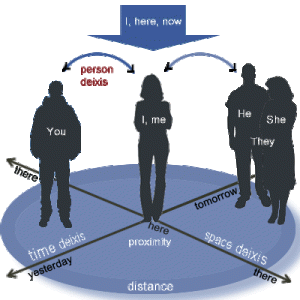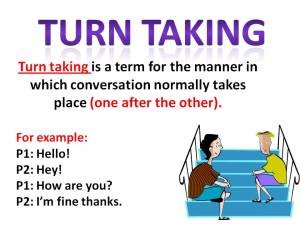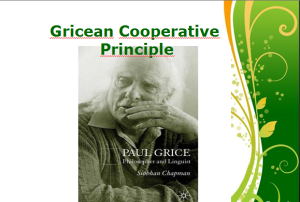Conversation
Communication is the exchange of information. Sometimes people just talk in a monolog. They go on and on and do not listen to anyone else.

When more than one person is involved in communicative interaction, we call it conversation.


Conversation is defined as a linguistic interaction between two or more parties.

Conversations are highly contextualized; they are tuned in to the other people in the conversation and the situation in which it takes place.

Conversations are also goal-directed; the participants are trying to achieve certain communicative intentions. These intentions may simply be giving and receiving information but could be just about anything. Participants in conversation may be making agreements, talking about feelings, trying to solve some problem together, and so on.

Conversation is also cooperative. The participants assume that their contributions serve a purpose and are generally well-conducted.

There are a number of organizational principles relating to conversation:
Deixis

Imagine you find a note on the street that says “We can do that if you meet me there after this.” You have no idea about the action, person, place, or time referred to. However, in normal conversations, you do know. We use deixis in conversations all the time, without even thinking about it.

1. We can do that if you meet me there after this.
We, you, and me are Person Deixis Elements. That and this are Discourse Deixis Elements. They refer to some activity that is clear from the context. There is a Place Deixis Element. After is a Time Deixis Element.
Local Reference

When people talk about the positions of things, the point of view of the speaker is important. The participants in a conversation take turns so it can be confusing.
Turn Taking

Conversations normally follow a pattern of turn taking. Of course, it is possible for people to talk for a very long time before giving other people a chance! Can you work out the rules governing cooperative turn taking?
The Cooperative Principle
The famous philosopher Herbert Paul Grice (1913-1988) argued that people make sure that their contributions are governed by a spirit of cooperation.

People try to make sense of other people’s utterances, even when it seems like it doesn’t make sense.
